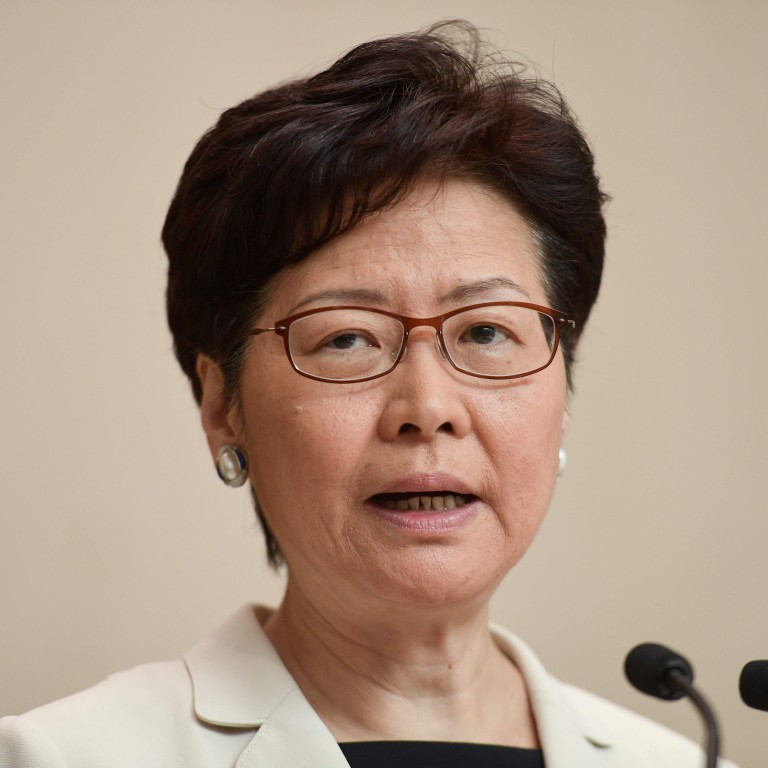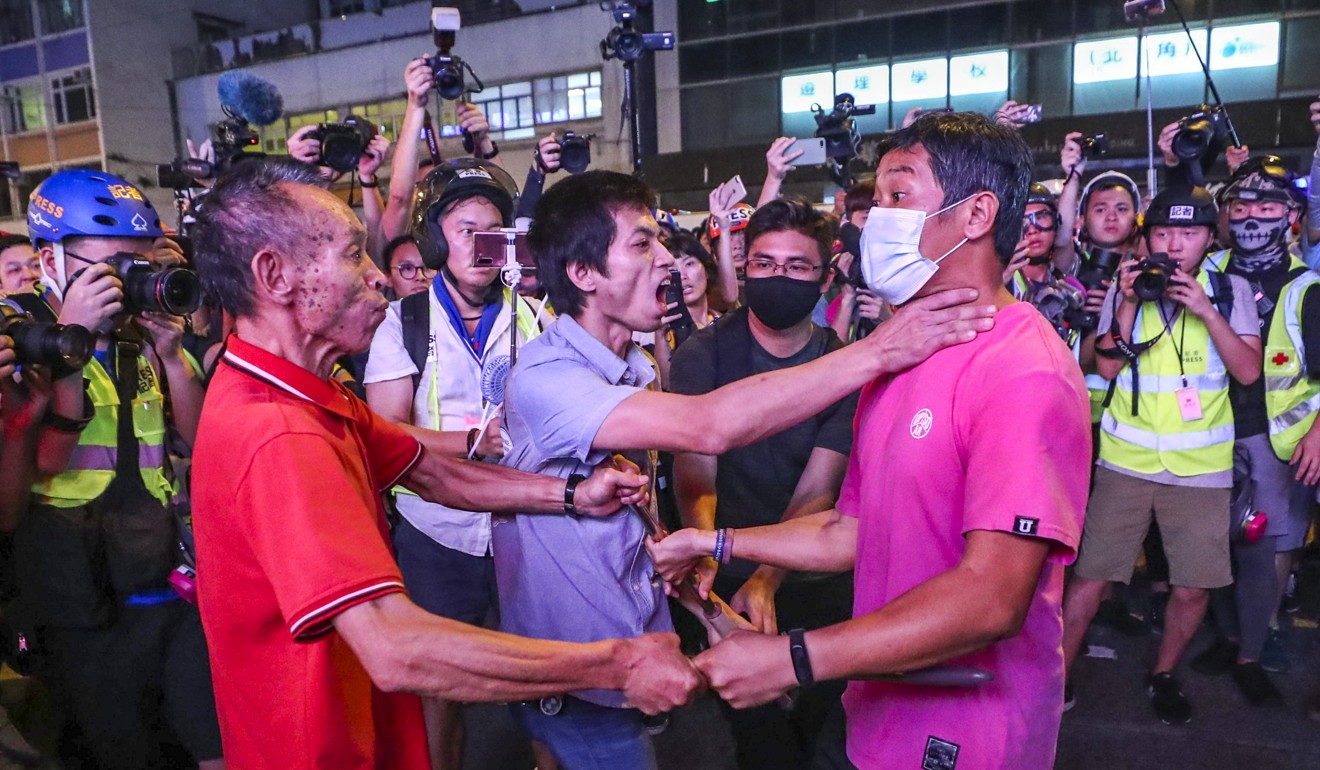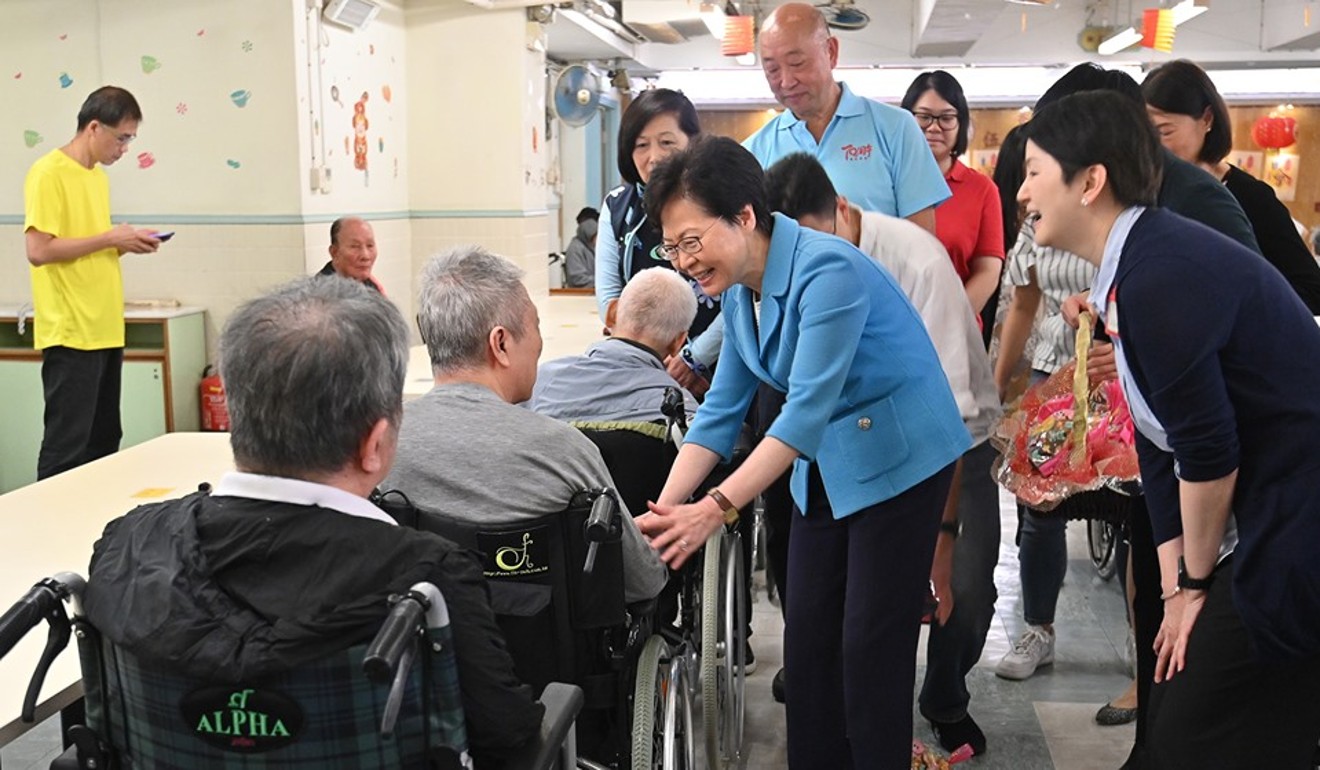
Hong Kong leader Carrie Lam to meet public next week in first of dialogue sessions to defuse protest crisis
- Chief executive finally launches official programme of talks with planned sit-down involving up to 200 members of the public
- Discussions designed for government to better understand roots of demonstrations that have roiled city for months
Hong Kong’s embattled leader is set to finally open talks with members of the public next week after months of anti-government protests, as she attempts to reconnect with the community and find a way through the political crisis.
There were few concrete details as Chief Executive Carrie Lam Cheng Yuet-ngor on Tuesday announced her first dialogue session, while a scholar, Simon Shen Xu-hui, set up a counter panel with 10 academics from across the political spectrum to look for the causes of the social unrest.
Lam first offered to create a platform for discussion last month. And it was also among four actions she pledged to take on September 4 when she confirmed the withdrawal of the extradition bill, the draft legislation which sparked the political unrest.
Speaking before Tuesday’s weekly Executive Council meeting, she said: “This is an open dialogue platform which we will invite people from all walks of life to express their views to us.

“This is because of our conviction that communication is far better than confrontation.
“The problems go well beyond the bill, so it is important for the government to listen and engage the community to have a better understanding of those problems.”
Lam said she understood anger stemmed from “housing, land shortage, lack of diversity and inclusiveness in our economy”, adding that the face-to-face exchanges were not a one-off but would run over the long term.
There will be three types of dialogue under the approach outlined by the government.
The problems go well beyond the bill, so it is important for the government to listen and engage the community to have a better understanding of those problems
The first one, which launches next week, is open for all to sign up to. For each session, 100 to 200 people who registered in advance will be chosen, by lot, to attend.
Lam said the second format would be more representative, with citizens chosen randomly for an invite.
The third takes the form of in-depth focus groups, each attended by about 20 members of the public, Lam said, adding all meetings would adhere to principles of openness and transparency with the agendas made public.
The same morning, Shen, an associate professor at Chinese University questioned the effectiveness of such dialogue sessions in a post on his Facebook account.

Shen laid out the constraints of official dialogues, under what he called “the preconditions, politically correct red lines and ongoing clashes between police and civilians”.
In his post, Shen said he had invited 10 scholars from across the spectrum to join him on a steering panel that would aim to look for the causes of the social unrest.
‘Dialogue Office’ launched to help Hong Kong leader resolve protest crisis
They include Albert Chen Hung-yee, a legal scholar at the University of Hong Kong and a member of the Basic Law Committee, Cheng Kai-ming, former dean of education at HKU, and Joseph Wong Wing-ping, a former government minister.
Shen said the inquiry would be open to all scholars and they aimed to collect opinions from young people, in the form of interviews, and gather the information in a report for all parties from the city, Beijing and the international community,
In response to the Post’s inquiries, Chen said he supported Lam’s dialogue initiative and at the same time agreed to join Shen’s project as he believed it would be useful to collect the views of young people on the city’s future. As a university teacher, he said he had some contact with young people and noted that Cheng, a colleague, was also participating in the project.
Hong Kong Airlines to cut flights as protests take their toll
Although Lam on Tuesday spent much of her press conference discussing the programme of talks, she made clear that “having dialogue does not mean not taking resolute enforcement actions”.
In her opening remarks, Lam again gave strong backing to police and rejected criticism that officers had enforced the law selectively during clashes between anti-government and pro-Beijing protesters.
“Hong Kong police are unbiased and treat everyone equally when enforcing the law and safeguarding social order,” Lam said. “For some very unfair critics of our police force, I have to point out that I absolutely disagree.”
She said it was no easy task for police to separate groups with different political views.
Separately, Lam said she was disappointed with the downgrading of Hong Kong’s sovereign rating by Moody’s Investors Service on Monday.
“To change the outlook of Hong Kong’s rating from stable to negative, of course, is something that we find disappointing and we do not concur, especially if the justification for that sort of change in outlook was premised on whether we are still upholding ‘one country, two systems’,” she said, referring to the framework under which Beijing governs the city.
But Lam added that continued instability and social unrest would inevitably undermine and adversely affect international perceptions of the business environment in Hong Kong.
Police chief praises officers, union warns force can use live rounds
Anti-government anger triggered by the bill, which would have allowed criminal suspects to be sent back to mainland China, has fuelled 15 straight weekends of protests in Hong Kong.
Unmet demands from protesters include establishing a commission of inquiry to investigate police conduct and restarting the city’s stalled political reform process.
Wu Chi-wai, leader of the opposition Democratic Party, said he could not see how the dialogues could solve the crisis as Lam maintained a deaf ear to calls for an independent inquiry, on which there was social consensus as reflected by various polls.
“This is the crux of the issue which Lam still fails to comprehend. Lam has no courage to bear political accountability and no capability to solve the crisis,” Wu said.

